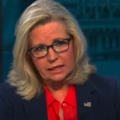In recent developments that have stirred the pot within the Catholic community and beyond, President Joe Biden has been spotlighted for what many are calling a selective adherence to Catholic teachings, earning him the label of a “cafeteria Catholic.” This term, as used by Archbishop Wilton Cardinal Gregory, criticizes Biden for cherry-picking aspects of the faith that align with his political agenda while conveniently sidelining core teachings that don’t. Among the glaring contradictions in Biden’s public persona as a devout Catholic are his stance on abortion and the controversial decision to mark Easter Sunday as “Transgender Day of Visibility.”
The Dichotomy of Faith and Policy
At the heart of the controversy is Biden’s pro-choice stance on abortion, a hot-button issue that starkly contrasts with the Catholic Church’s unwavering pro-life doctrine. Cardinal Gregory’s remarks during a CBS News’ “Face the Nation” interview underscored this contradiction, highlighting a concerning pattern of behavior where Biden’s political maneuvers seem to overshadow his purported religious convictions. The cardinal’s use of the term “cafeteria Catholic” is not just a casual remark but a pointed criticism of Biden’s approach to his faith—selecting what suits his political narrative and discarding the rest.
Easter Sunday or Transgender Day of Visibility?
Adding fuel to the fire, Biden’s administration made the unprecedented move to coincide “Transgender Day of Visibility” with Easter Sunday, one of Christianity’s holiest days, celebrating the resurrection of Jesus Christ. This decision has not only raised eyebrows but also sparked a backlash from various quarters, including prominent Christians, politicians, and commentators who view it as a blatant disregard for the sanctity of Easter. The juxtaposition of a religious celebration with a day dedicated to a cause that many Catholics find at odds with their beliefs has further cemented the perception of Biden’s presidency as one that prioritizes far-left policies over religious considerations.
The Archbishop’s Rebuke
Archbishop Gregory’s criticism extends beyond Biden’s stance on abortion. He pointedly addresses the broader issue of Biden’s manipulation of Catholic teachings for political gain, particularly in relation to life issues. This manipulation, according to Gregory, is not just a matter of personal belief but a strategic move that twists and turns the dimensions of faith to suit political ends. The archbishop’s comments reflect a deep-seated concern among religious leaders about the erosion of core religious values in the face of political expediency.
A Fractious Relationship with the Catholic Church
Biden’s fractious relationship with the Catholic Church is not new. Pope Francis himself has criticized Biden’s pro-choice views as a display of “incoherence,” highlighting the growing rift between Biden’s public declarations of faith and his policy decisions. This tension underscores a broader debate within the Catholic community and beyond about the authenticity of Biden’s religious convictions and his ability to reconcile them with his political agenda.
Final Thoughts
As President Biden continues to navigate the choppy waters of American politics, his “cafeteria Catholicism” remains a point of contention. The selective adherence to Catholic teachings, especially on critical issues like abortion, coupled with decisions that seem to flout religious traditions for political advantage, paints a picture of a presidency at odds with its religious proclamations. The juxtaposition of Easter Sunday with “Transgender Day of Visibility” is emblematic of a broader trend where far-left policies are prioritized over religious considerations, raising questions about the sincerity of Biden’s faith.
The criticism from Archbishop Gregory and the backlash from the Catholic community reflect a growing disillusionment with a leader who claims to be a devout Catholic yet adopts policies that contradict the very essence of Catholic teachings. As the debate rages on, the label of a “cafeteria Catholic” sticks, serving as a reminder of the complex interplay between faith and politics in Biden’s presidency. Whether this will have lasting implications on his relationship with the Catholic community and his political legacy remains to be seen. However, one thing is clear: the contradictions between Biden’s professed faith and his policy decisions continue to fuel discussions about authenticity, hypocrisy, and the role of religion in modern politics.
Having trouble? If your comment doesn’t post, submit another comment right after it that says: Jimmy, please approve my comment that didn’t post.














Leave a Reply